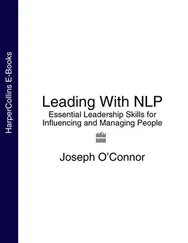John Gray - Children Are from Heaven - Positive Parenting Skills for Raising Cooperative, Confident, and Compassionate Children
Здесь есть возможность читать онлайн «John Gray - Children Are from Heaven - Positive Parenting Skills for Raising Cooperative, Confident, and Compassionate Children» весь текст электронной книги совершенно бесплатно (целиком полную версию без сокращений). В некоторых случаях можно слушать аудио, скачать через торрент в формате fb2 и присутствует краткое содержание. Год выпуска: 1999, ISBN: 1999, Издательство: HarperCollins e-books, Жанр: psy_childs, sci_pedagogy, Психология, на английском языке. Описание произведения, (предисловие) а так же отзывы посетителей доступны на портале библиотеки ЛибКат.
- Название:Children Are from Heaven: Positive Parenting Skills for Raising Cooperative, Confident, and Compassionate Children
- Автор:
- Издательство:HarperCollins e-books
- Жанр:
- Год:1999
- ISBN:978-0-06-133886-1
- Рейтинг книги:4 / 5. Голосов: 1
-
Избранное:Добавить в избранное
- Отзывы:
-
Ваша оценка:
- 80
- 1
- 2
- 3
- 4
- 5
Children Are from Heaven: Positive Parenting Skills for Raising Cooperative, Confident, and Compassionate Children: краткое содержание, описание и аннотация
Предлагаем к чтению аннотацию, описание, краткое содержание или предисловие (зависит от того, что написал сам автор книги «Children Are from Heaven: Positive Parenting Skills for Raising Cooperative, Confident, and Compassionate Children»). Если вы не нашли необходимую информацию о книге — напишите в комментариях, мы постараемся отыскать её.
Children Are from Heaven: Positive Parenting Skills for Raising Cooperative, Confident, and Compassionate Children — читать онлайн бесплатно полную книгу (весь текст) целиком
Ниже представлен текст книги, разбитый по страницам. Система сохранения места последней прочитанной страницы, позволяет с удобством читать онлайн бесплатно книгу «Children Are from Heaven: Positive Parenting Skills for Raising Cooperative, Confident, and Compassionate Children», без необходимости каждый раз заново искать на чём Вы остановились. Поставьте закладку, и сможете в любой момент перейти на страницу, на которой закончили чтение.
Интервал:
Закладка:
they feel.
Responsive children tend to be more joyous, light, and eager. They are literally fed by life’s images and changes. For them, life is an adventure. They tend to be more social and talk a lot. They make friends easily and tend to like everyone. They are often irresistible, charming, and accommodating. They don’t hold grudges.
They don’t have deep attachments and are not easily hurt. They have tantrums and resistance, but these usually arise when they are being required to focus or do something they don’t want to do. Both chaos and emotional ups and downs are a common part of their life.
They tend to be scattered, forgetful, and unreliable. It is difficult for them to pick up after themselves. They need to be asked again and again. With this insight, parents can find greater peace. Don’t expect this child to create order in his or her environment. That is your job. For example, responsive children will not keep their room clean unless they get help. Instead of fighting them, just work with them.
When given the opportunity to have fun and explore many things briefly, they develop their attention span and learn to focus and go deeper. Over time, they will learn to finish tasks. After the age of seven, they need firm encouragement to stay focused. This is most easily done by taking the time to help them.
Without the right kind of support, responsive children, overwhelmed by life’s responsibilities, tend to become easily irresponsible or overly scattered and they often reject the responsibilities of being an adult. When they do get the support they need, they become solid, responsible, self-directed, focused, confident, and accomplished.
Receptive Children Need Ritual and Rhythm
The fourth temperament is receptive. Receptive children are more concerned about the flow of life. They want to know what will happen next and need to know what to expect. When they understand the flow, they are most cooperative.
New situations where they don’t know what to expect will trigger resistance. They know themselves by what they expect will happen. When this child expects to be loved, then they feel loved. They need a lot of routine, repetition, and rhythm.
There needs to be a set time to eat, a time to sleep, a time to play, a time to spend special time with mommy or daddy, a time to pick out tomorrow’s clothes, etc. They respond well to reassurance and encouragement like, “Now it’s time to do this . . .” or “Now we are going to . . .”
They are the most good-natured and thoughtful children. They need more time to do things in an orderly pace and are most resistant to change. They can’t make quick decisions and should not be asked what they want, think, or feel. Instead, they need to be told what to do.
Receptive children are the most good-
natured and thoughtful children.
As long as it is not a big change, they are most cooperative. A change in time signals a need to change an activity.
Using the phrase, “Now it’s time to . . .” reassures this child that everything is unfolding and moving as usual. They need things to be predictable around them.
Although they like being told what to do, they will resist being pushed into things or rushed. Like the sensitive child, they need more time to do things or make changes. They need lots of reassurance that everything is preplanned and thought out. It is what they are used to. Repetition gives them comfort. They don’t move as much as other children.
Often they are just content to stay still and just enjoy being, resting, eating, looking, listening, and sleeping.
They can simply enjoy the passage of time. They are not automatically self-directed, creative, or innovative. They need to be told, “Now it is time to . . . ,” otherwise they may just sit and daydream. They love physical comfort and, rather than risk discomfort, would rather sit and watch.
Unlike the active child, they don’t need to lead or even participate. As young children, they often need to just watch and observe. They may watch other children do an activity fifty times and then suddenly just do that behavior. Observing is enough participation for them to develop interest.
Receptive children participate by observing.
A four-year-old child intently watching other children play is not feeling left out. That child is perfectly content to watch. It is as though the child is doing the activity through others. This is not a problem. Eventually, he or she will participate. Around age seven, it is fine to encourage participation, but if a child resists, let him be.
A way to encourage is not by asking, “Would you like to join in?” Instead, use the phrase, “Now it is time for you to join in.”
If the child resists, then say, “Okay, I can see you would rather watch. Let me know when you want to join in.”
Receptive children are often neglected because they are so quiet, easygoing, and nondemanding. They also occasionally need to struggle and resist. They need to be gently motivated to do things and be challenged, even though they would rather sleep or stay at home.
You have to give these children a task. Unless they get this kind of help, they may not develop any interests. The security of regular routines, rituals, and rhythm supports them in gradually taking the risks required to do something new.
As a rule, if there is a change,
they don’t want it.
The responsive child’s not wanting to do something is not a good enough reason not to do it. They will never want to do something new. When they resist doing new things, be gentle and never force participation. Remember, by just watching, they are participating on a level comfortable for them. Persist in giving them occasional opportunities to expand their interests, but don’t push them to participate.
Watching and observing is always good enough.
These children don’t like to be interrupted. They want to keep going to the last detail. Repetition gives them security.
They will resist when you try to stop them, but their resistance is often silent. They hold back tantrums, because they don’t want to cause a problem or be an inconvenience. They have a great fear of disappointing their parents or being rejected.
LOVING RITUALS
Receptive children feel loved by expecting it. Loving rituals need to be created so that these children have a way to experience their worthiness and special connection with each parent. Rituals don’t have to take a lot of time; they just need to be recognized as special and then be repeated again and again.
With my daughter, Lauren, we had a special ritual of walking into town through the forest and then resting and having a Madeline cookie at the local bookstore. When she was a young child, I would take her in the stroller and then later, when she was older, we would walk or ride bikes. The whole ritual would take about twenty-five minutes. A ten-minute walk each way and five minutes to eat our cookies and pet the local dogs.
Today, as a teenager, she clearly remembers these early childhood experiences and the loving connection we shared.
Many adults have difficulty remembering the love and joy in their childhood and this is a great loss. Being able to remember feeling loved and supported gives us a deep level of security for the rest of our lives.
By simply taking normal activities of parenting and doing them at a certain time, they can become a ritual and thus be most easily remembered. A ritual is created by also talking about it several times. For example, say “Today is Saturday and we can walk into town and get a Madeline cookie.” To feel special, children need special activities at special times. Here are some random examples:
•On Saturday morning Daddy is going to make eggs on toast in his special way.
Читать дальшеИнтервал:
Закладка:
Похожие книги на «Children Are from Heaven: Positive Parenting Skills for Raising Cooperative, Confident, and Compassionate Children»
Представляем Вашему вниманию похожие книги на «Children Are from Heaven: Positive Parenting Skills for Raising Cooperative, Confident, and Compassionate Children» списком для выбора. Мы отобрали схожую по названию и смыслу литературу в надежде предоставить читателям больше вариантов отыскать новые, интересные, ещё непрочитанные произведения.
Обсуждение, отзывы о книге «Children Are from Heaven: Positive Parenting Skills for Raising Cooperative, Confident, and Compassionate Children» и просто собственные мнения читателей. Оставьте ваши комментарии, напишите, что Вы думаете о произведении, его смысле или главных героях. Укажите что конкретно понравилось, а что нет, и почему Вы так считаете.












